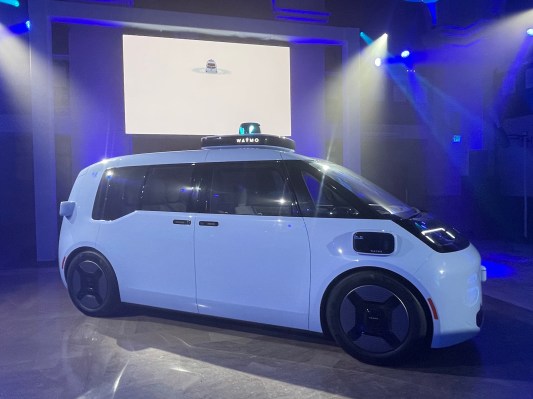Nearly two years after Waymo and Geely struck a deal to develop robotaxis for the U.S. market, we are seeing concrete progress in the collaboration.
According to a job post on LinkedIn, Zeekr, the young electric car brand started by Chinese auto giant Geely, is hiring a logistics manager in the U.S. A spokesperson for Zeekr confirmed to TechCrunch that the candidate will work on “the Waymo project and among other things.”
Not long ago, Zeekr was also hiring a manager to oversee service operations and repair planning in the U.S.
The robotaxi project is “proceeding as scheduled,” said the spokesperson, adding that Zeekr will be “sharing with Waymo the first vehicles for testing” in the U.S. by the end of this year.
In December 2021, Alphabet’s autonomous driving arm Waymo announced plans to build an all-electric robotaxi with Zeekr. Last November, the pair teased a prototype of the model featuring Waymo’s self-driving system and Zeekr-built hardware. As my colleague Kirsten described her impression at the time:
The vehicle isn’t quite a present-day minivan nor is it a sci-fi vehicle. It’s somewhere in-between with some interesting details, a wisp of Swedish-inspired design thanks to partner CEVT and features meant to make it more accessible.
There’s no specific timeline for when Waymo-Zeekr robotaxis will start commercial operations, though the recruitment move provides some reassurance that the project is moving forward amid a challenging time. Escalating U.S.-China tensions have disrupted other high-profile partnerships between companies from the two superpowers, including Ford’s $3.5 billion plan to build a factory with Chinese battery giant CATL in Michigan.
The logistics manager will report to Zeekr’s U.S. general manager Ron Oppat, who worked at Ford for two decades before joining the Chinese automaker. The role, which will ideally be based around the San Francisco or San Jose areas, is “responsible for leading a team that will develop Zeekr’s finished vehicles and spare parts distribution network” and “develop logistics processes, systems, partnerships, and supply strategies to enable efficient operations and help Zeekr achieve the lowest vehicle repair downtimes.”
The Zeekr spokesperson confirmed to TechCrunch that its plan in the U.S. is to reach a headcount of around eight-10 people this year and around 25 next year, not including third-party technicians.
